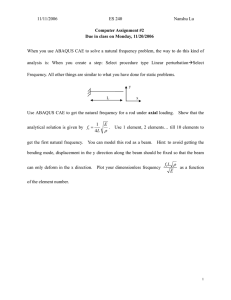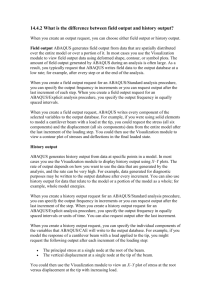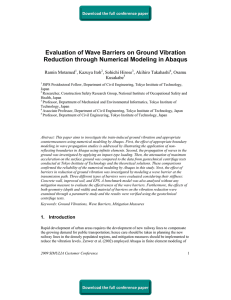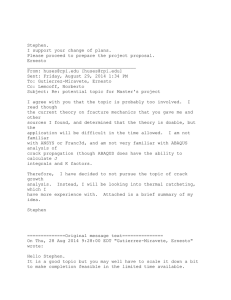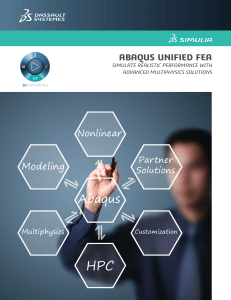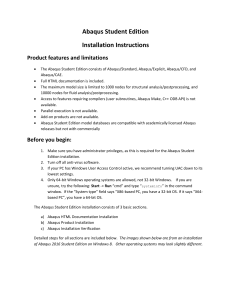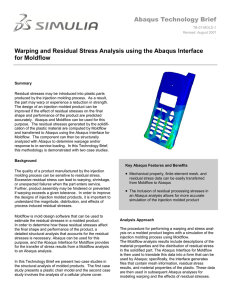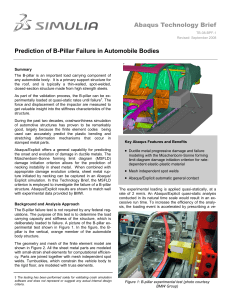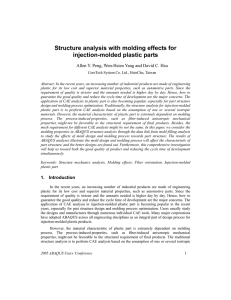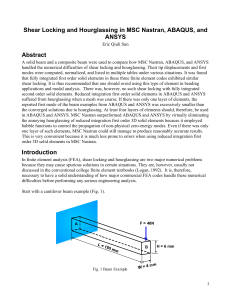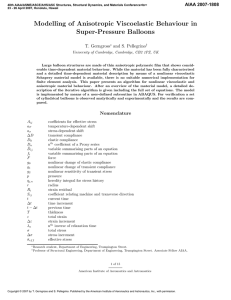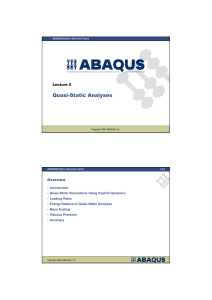ABAQUS for Package Development at Procter & Gamble
advertisement
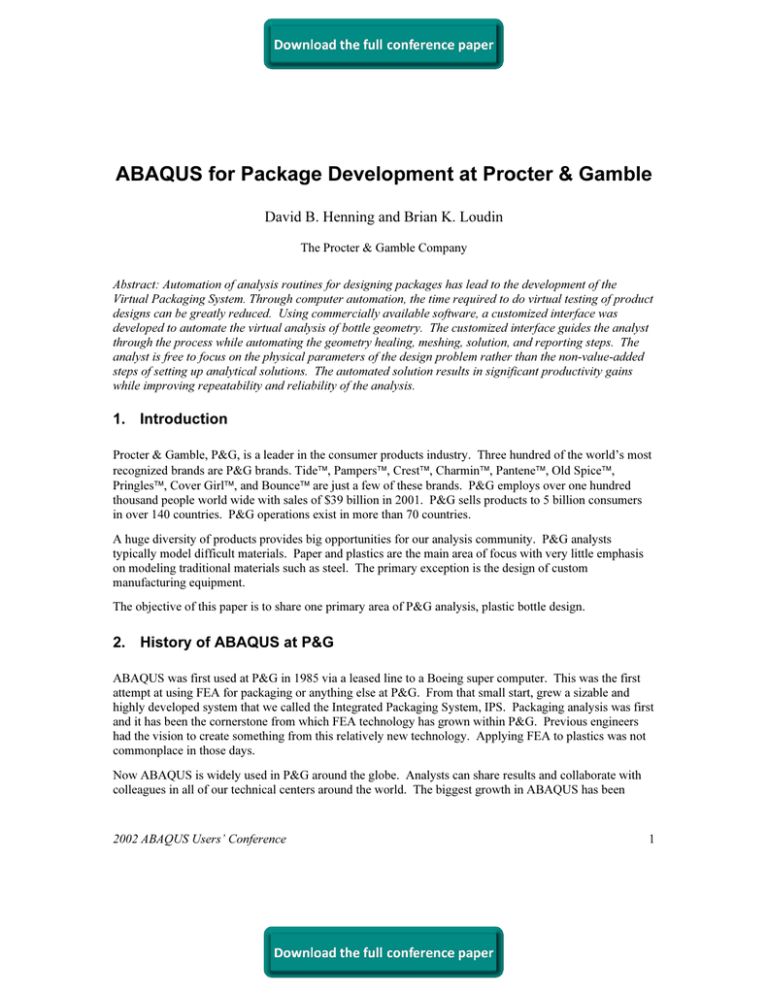
ABAQUS for Package Development at Procter & Gamble David B. Henning and Brian K. Loudin The Procter & Gamble Company Abstract: Automation of analysis routines for designing packages has lead to the development of the Virtual Packaging System. Through computer automation, the time required to do virtual testing of product designs can be greatly reduced. Using commercially available software, a customized interface was developed to automate the virtual analysis of bottle geometry. The customized interface guides the analyst through the process while automating the geometry healing, meshing, solution, and reporting steps. The analyst is free to focus on the physical parameters of the design problem rather than the non-value-added steps of setting up analytical solutions. The automated solution results in significant productivity gains while improving repeatability and reliability of the analysis. 1. Introduction Procter & Gamble, P&G, is a leader in the consumer products industry. Three hundred of the world’s most recognized brands are P&G brands. Tide, Pampers, Crest, Charmin, Pantene, Old Spice, Pringles, Cover Girl, and Bounce are just a few of these brands. P&G employs over one hundred thousand people world wide with sales of $39 billion in 2001. P&G sells products to 5 billion consumers in over 140 countries. P&G operations exist in more than 70 countries. A huge diversity of products provides big opportunities for our analysis community. P&G analysts typically model difficult materials. Paper and plastics are the main area of focus with very little emphasis on modeling traditional materials such as steel. The primary exception is the design of custom manufacturing equipment. The objective of this paper is to share one primary area of P&G analysis, plastic bottle design. 2. History of ABAQUS at P&G ABAQUS was first used at P&G in 1985 via a leased line to a Boeing super computer. This was the first attempt at using FEA for packaging or anything else at P&G. From that small start, grew a sizable and highly developed system that we called the Integrated Packaging System, IPS. Packaging analysis was first and it has been the cornerstone from which FEA technology has grown within P&G. Previous engineers had the vision to create something from this relatively new technology. Applying FEA to plastics was not commonplace in those days. Now ABAQUS is widely used in P&G around the globe. Analysts can share results and collaborate with colleagues in all of our technical centers around the world. The biggest growth in ABAQUS has been 2002 ABAQUS Users’ Conference 1
